In my last post I began to present evidence that seems to betray a lack of elementary competence in Greek on the part of the supposed translator of the ‘Passion Translation’. I say ‘supposed’, because I have reluctantly come to the provisional conclusion that Brian Simmons is not translating at all, in any meaningful way, but rather is working from English versions, while making some use of lexicons to find novel renderings for individual words. I stand to be corrected. I have written to the author and publisher presenting my evidence and have not received any alternative explanation for the gross blunders in the ‘translator’ footnotes. Yesterday I showed that:
ἐλάλησα αὐτοῖς
cannot mean: 1
spoken these things
but must mean
spoken to them.
Today I draw attention to a similarly glaring error in another footnote just three verses later in John.
John 15.25
ἀλλ’ ἵνα πληρωθῇ ὁ λόγος ὁ ἐν τῷ νόμῳ αὐτῶν γεγραμμένος ὅτι ἐμίσησάν με δωρεάν.
"But they have done this to fulfill the word that is written in their Law, 'They hated me without a cause.' [NASB]
But this happened that the word might be fulfilled which is written in their law, 'They hated Me without a cause.' [NKJV}
But the word that is written in their Law must be fulfilled: 'They hated me without a cause.' [ESV]
but -- that the word may be fulfilled that was written in their law -- They hated me without a cause. [Young's Literal Translation]
In Brian Simmons’ John: Eternal Love (2015), this verse reads:
The translation seems more or less acceptable. Rendering νόμος (‘law’) with ᾽Scriptures᾽ may not be too bad, given that the quotation comes from the Psalms rather than the Pentateuch. BDAG (the Bauer-Danker Lexicon) at νόμος 3.b, states that νόμος can be used to refer to the ‘Holy Scripture generally, on the principle that the most authoritative part gives its name to the whole’.
The problem occurs in Simmons’ footnote ‘b’. He claims that:
ἐμίσησάν με δωρεάν
can mean
They hated my undeserved gifts.
By so doing, he seems to demonstrate that he lacks even a very elementary knowledge of Greek.
The meaning of ἐμίσησάν is not at issue. It is the third person plural aorist active indicative of μισέω, ‘I hate’. Thus: ‘they hated’.
The direct object of μισέω, that is, the person or thing that is hated by someone, goes into the accusative case, as would be expected. See ‘w. acc. of’ (‘with accusative of’) at 1.a and 1.b in the entry in BDAG:
Our text again:
ἐμίσησάν με δωρεάν
με is the accusative singular of the first person singular personal pronoun ἐγώ. Bill Mounce gives its declension in chapter 11 of his introductory Greek grammar Basics of Biblical Greek, along with some explanatory remarks:
με will thus normally be translated by the English first person singular accusative personal pronoun, ‘me’. Standing in the accusative case after ἐμίσησάν, it is the direct object of the verb. Thus: ‘they hated me’.
Our text again:
ἐμίσησάν με δωρεάν
δωρεάν is the accusative singular of δωρεά, ᾶς, ἡ, which is a noun. BDAG gives the meaning as ‘that which is given or transferred freely from one person or another’, with English equivalents ‘gift’, ‘bounty’:
In the accusative case, as here, it can be the direct object of a verb. But in this short clause, there is already a natural direct object for the verb, με, also in the accusative. There are certain verbs which can have two objects in the accusative, but μισέω is not one of them. 2 Why then is δωρεάν in the accusative here?
The answer is that, as is common in Greek, 3 the accusative of δωρεά can also be used as an adverb:
Three meanings are distinguished: ‘without payment’, ‘without reason/cause’, ‘to no purpose’. Here, the second of these makes perfect sense:
They hated me without cause.
So the meaning of the text is clear, and carries no difficulty.
‘They hated my undeserved gifts’
We can now examine Simmons’ claim that:
ἐμίσησάν με δωρεάν
can also mean
They hated my undeserved gifts.
There are two elementary mistakes here. First, to signify possession, the genitive case of the personal pronoun would be needed. Here is the relevant part of Mounce’s table again:
So μου would be needed, not με.
Second, δωρεάν is singular, not plural. δωρεά, ᾶς, ἡ is a First Declension feminine noun in -α, -ας. Wenham gave the declension of such nouns in his introductory Elements of New Testament Greek in Lesson 9 (left-hand column):
The accusative plural ends in a Sigma, ς, not a Nu, ν.
Therefore, a possible Greek equivalent of:
They hated my undeserved gifts.
would be:
ἐμίσησαν τὰς δωρεάς μου
The actual text:
ἐμίσησάν με δωρεάν
cannot have this meaning. Nor do I yet see how anyone with even elementary competence in Greek could imagine that it did.
I have no desire to cause distress to Brian Simmons by pointing these things out. I believe he was sincere in believing that God had instructed him to translate the bible, but I have become convinced that he must have been mistaken in this belief.
Andrew Chapman
Notes:
- The subject ‘I’ appears earlier in the sentence. ↩
- For example, both ὑμᾶς and πάντα are objects in the accusative of διδάξει in John 14.26: ἐκεῖνος ὑμᾶς διδάξει πάντα, ‘that one will teach you all things’. ↩
- See A. T. Robertson, A Grammar of the Greek New Testament in the Light of Historical Research, 2nd ed. (New York: Hodder & Stoughton, 1915), p. 294. ↩


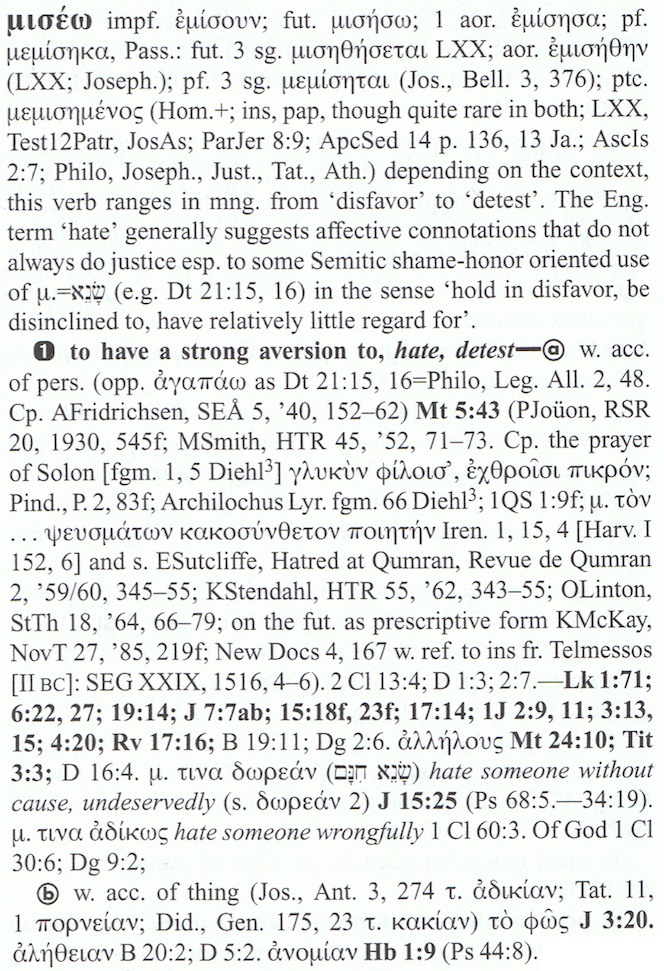
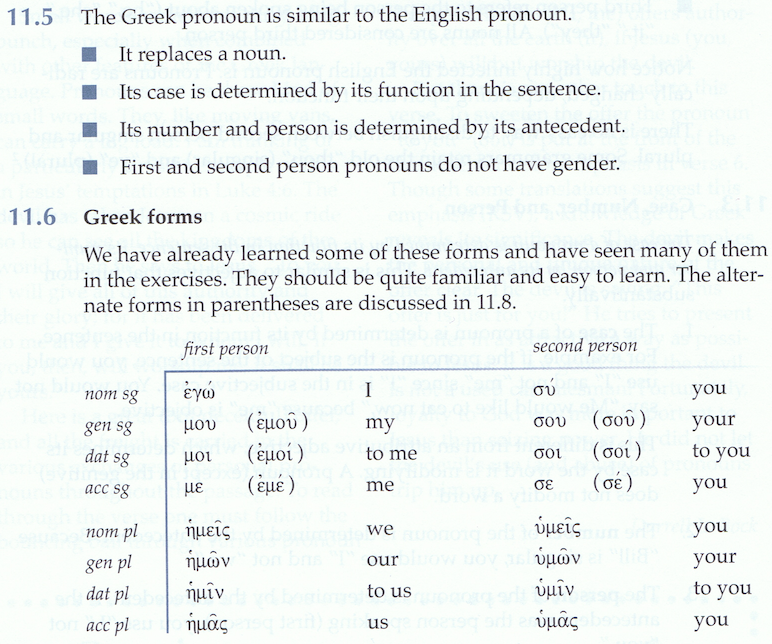

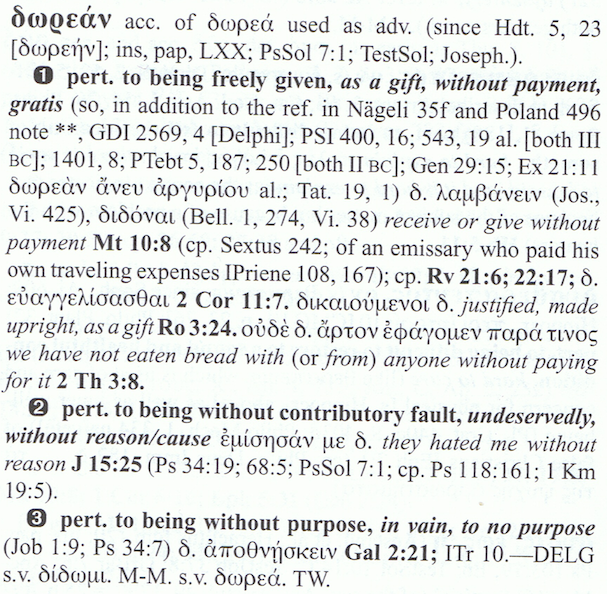
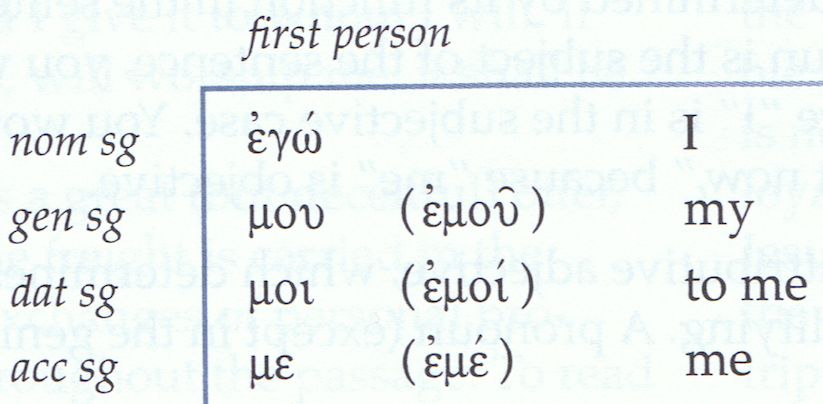
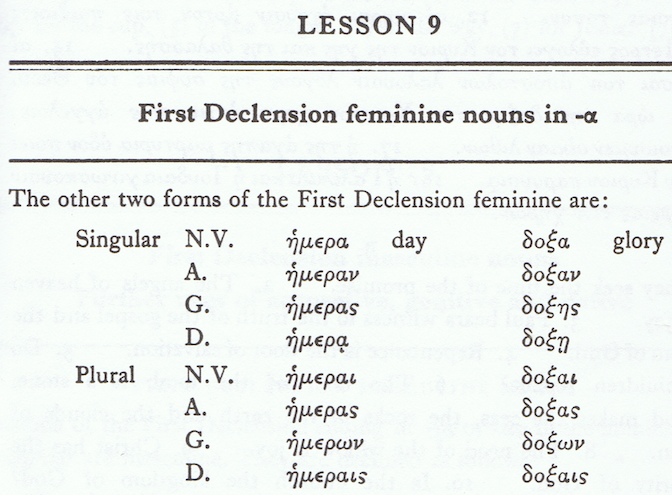
Its very important especial the last days we are living in to have teachers of the word so as to save the church from heresy.The church is the pillar and ground of truth.Paul instructed Timothy to study to show himself approved a workman that needs not be ashamed rightly dividing the word of truth.Thanks Andrew God’s grace be upon you.Trusting Father to see you in April.
Thanks, Aggrey, I agree with you that the church is in great need of men who will teach the word of God faithfully without compromise. The Lord is with you, brother.